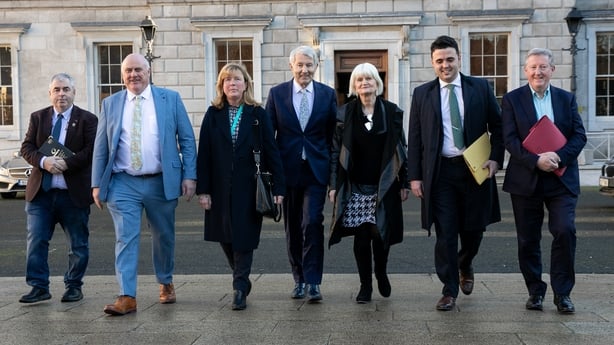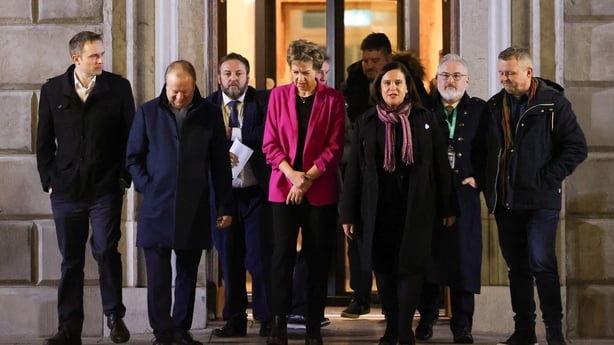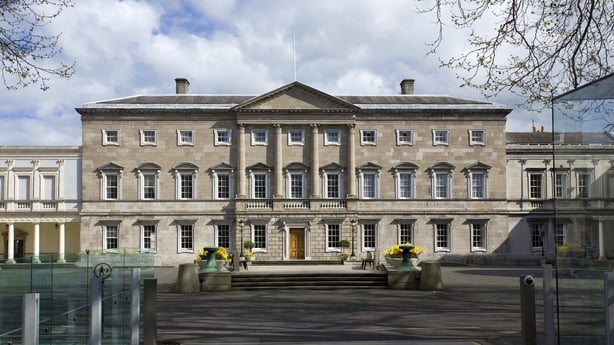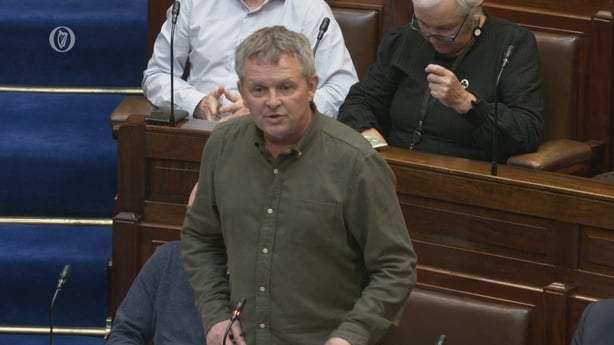When the Dáil reconvenes at 2pm tomorrow, the so-called 'speaking rights' row is expected to reach a boiling point, a full three months on from November’s General Election.
It has been regularly on the news agenda for months and massively disrupted the operation of our national parliament, but you would be forgiven for wondering what exactly it comes down to.
Here’s the three-minute read you need to understand what the row is all about.
From where did the row originate?
The controversy dates back to government formation talks, when Fianna Fáil and Fine Gael entered negotiations with a group of nine independent TDs led by Tipperary’s Michael Lowry.
At the core of that group are TDs who in the last Dáil were in the Regional Independents’ technical group, and the Lowry-led group have kept that name.
Ultimately, a deal was struck with them to form a government: Fianna Fail and Fine Gael agreed a new coalition agreement with their support and that of the Healy-Rae brothers.
Under that deal, the independent group agreed to vote with the government in the Dáil, and four of the group became junior ministers, while Wexford’s Verona Murphy was appointed Ceann Comhairle.
The remaining four - Michael Lowry, Danny Healy-Rae, Barry Heneghan and Gillian Toole - then said they intended to form a Dáil technical group.

‘Technical groups’ have been part of the Dáil for decades. They are formed by TDs - often with disparate views - in order to gain access to rights or resources, but more crucially speaking time.
Speaking time in the Dáil is allocated based on party or group size: Independent TDs on their own may not get any regular speaking slots, but by forming a technical group of 5 TDs, they can pool their numbers to qualify for scheduled speaking time, including during high profile weekly debates such as Leader’s Questions.
Similarly, it also means they can introduce legislation or nominate members to Oireachtas committees, where legislation is discussed and public servants questioned.
In all, it increases their profile and gets them access to resources which would otherwise not be available to independents.
However – and this is the core of the row - technical groups have historically always made up of opposition TDs. In fact, the rules of the Dáil (called Standing Orders) said they must be – but the government is seeking to ‘modernise’ those rules to move forward with this new Dáil.
Since the idea of a technical group made up of TDs who were involved in the negotiation of the Programme for Government was mooted, opposition parties have been outraged.
In a rare move, they came together and insisted that any TDs involved in government formation talks should not be given speaking time which would otherwise be given to them.

A massive furore erupted. On the day of what would have been a box-ticking vote in the Dáil to select a new taoiseach, a massive argument ensued and the Dáil was suspended. The opposition and government both accused each other of undermining democracy, and the authority of the new Ceann Comhairle was questioned.
A day later, after reports in international media about ‘unprecedented chaos’ in the Irish parliament, the government succeeded in electing a new Taoiseach and Tánaiste.
That was late-January.
Solving the problem?
However, in a bid to resolve the issue, parties agreed to form a Dáil Reform Committee at the end of January. It is a cross-party committee that reviews and tries to improve how the Dáil operates.
There, the government argued that the regional independents should be recognised as a technical group, and the opposition argued they are part of the government – so should not.
After discussions there, no solution could be achieved.
Eventually, proposals by both the Government and the Opposition to solve the standoff were presented to the committee to vote on.
The committee, like all Oireachtas committees, has more Government representatives on it than Opposition representatives. It approved the Government proposal on 26 February by ten votes to eight, with all ten votes being cast by Fianna Fáil and Fine Gael members.

In other words, no compromise was achieved, the Government used its majority on the committee to push through its proposals. Unsurprisingly, it was not well received by the Opposition. The move was described at a press conference attended by all Opposition party leaders as "dangerous", "utterly farcical" and "disgraceful."
Sinn Féin leader Mary Lou McDonald said the Opposition would explore "all options" to resist the proposed changes to the Dáil speaking rules.
Following the vote, Government Chief Whip Mary Butler said in a statement that the Government’s proposal would not reduce Opposition speaking time.
Again, that was disputed.
The Opposition then withdrew from pairing arrangements, a protocol under which the Opposition agrees to withdraw one TD from a vote if a Government TD (usually a minister) is unavailable due to having to conduct other necessary government business.
While all this was going on, procedures to agree the formation of various Oireachtas Committees did not move ahead – as a result there is no Public Accounts Committee yet formed in the new Oireachtas, or any other type of committee.
Then, in February, after legal advice and as the ‘stalled Dáil’ remained, the Ceann Comhairle ruled that the Lowry-led group was not eligible for recognition as a technical group.
What exactly has been proposed?
The government is now proposing that the four TDs from the originally proposed Regional Independents technical group would be considered ‘others.’ In other words, not Government or Opposition. They along with other Government backbenchers will still be allocated speaking time on Tuesdays and Wednesdays, get to put questions to the Taoiseach and extra time will be provided for them in Minister’s Questions and private member’s time.
Opposition parties say this is an example of government ‘blurring the lines’.
Despite these new speaking slots being allocated, Government continues to insist that it won’t affect the speaking time of Opposition TDs, saying more overall speaking time has been planned for the new Dáil so Opposition speaking rights are not cut back.
However, it appears a chunk of time that would traditionally have been used by Opposition members has been lost.
Written questions which had previously been answered by the Taoiseach on Wednesdays will be no more: People Before Profit are the party most-associated with taking advantage of that time.

Such time will still be available on Tuesdays, Government says.
Why is it all about to erupt again?
The Oireachtas Business Committee, which decides the weekly schedule of parliamentary business, has been unable to agree a plan for upcoming parliamentary business because the Opposition and Government are at loggerheads over the speaking rights row.
Tomorrow, the Government is expected to use its Dáil majority to push through changes to the standing orders (the rules) of the Dáil, in the process granting speaking rights to Michael Lowry, Danny Healy-Rae, Barry Heneghan and Gillian Toole.
The Opposition are again expected to put up a major protest.
"Government is getting on with it. We're going to continue to do what we have to do, in respect of decisions," the Taoiseach said, criticising Opposition parties for holding up the process of the parliament.
"If you don't want to form committees and you want to be a barrier to the formation of committees, that's your business, but actually, we will get legislation done."
This assertion has been roundly rejected by the Opposition with Labour leader Ivana Bacik stating that it is the Government who are the cause of the delays.
"Many of us in Opposition are concerned to hear your government suggesting that we in Opposition are somehow delaying the formation of Committees," Ms Bacik said.
"We are abiding by that ruling of the Ceann Comhairle – you [Government] are looking to change it," she added.
What will happen after tomorrow?
Even if the Government forces through its proposals, it won’t lead to instantaneous change.
The selection of Oireachtas committees takes time and it could be after the Easter break before any progress is made.
Some suggest it could be May before a final agreement is reached — and with the Dáil due to recess in July, that could leave just two months for committees to operate before the summer break.
This Dáil has already been accused by Aontú leader Peadar Tóbín of being "a legislature that cannot legislate."
There are currently 14 bills, 11 government and 3 opposition, on the order paper so there’s work to be done. But there’s no great urgency to pass legislation from government until the issue is resolved.
Despite being flagged as urgent during the General Election campaign, the Defamation Bill and the Mental Health Bill are still sitting idle, with no progress made.
Whatever happens tomorrow, it’s unlikely to happen quietly.

